[Ad- gifted product] We’re starting to get to those Winter days where it looks nice and sunny outside, but the temperature is still bitingly cold. This definitely limits the number of places that you can get out and about, which in turn gives another brilliant opportunity to dive into a science kit. We’re still subscribed to the MEL Science Physics range, and the Lenses box had recently came through the mail, so we gave it a go.
I really like the number of options when it comes to science kits, and while Kai started to grow bored with other types of subscriptions —we did a lot of plant-, outdoors- and cooking- focused ones — that never happened with science ones, although as he started studying science at a more complex level at secondary school we needed to move onto a kit that reflected that. This is where the MEL Physics range came in. Secondary school age, in the UK, is when science lessons become specifically broken into individual subjects like chemistry, geology, biology and physics, and as such there’s normally a big step-up in the depth that’s being taught. While the majority of experiments are often in a similar vein to those done in primary school, the science behind them is normally taught with more depth, and in different ways. This box, the MEL Science Lenses box, is a great example of this.
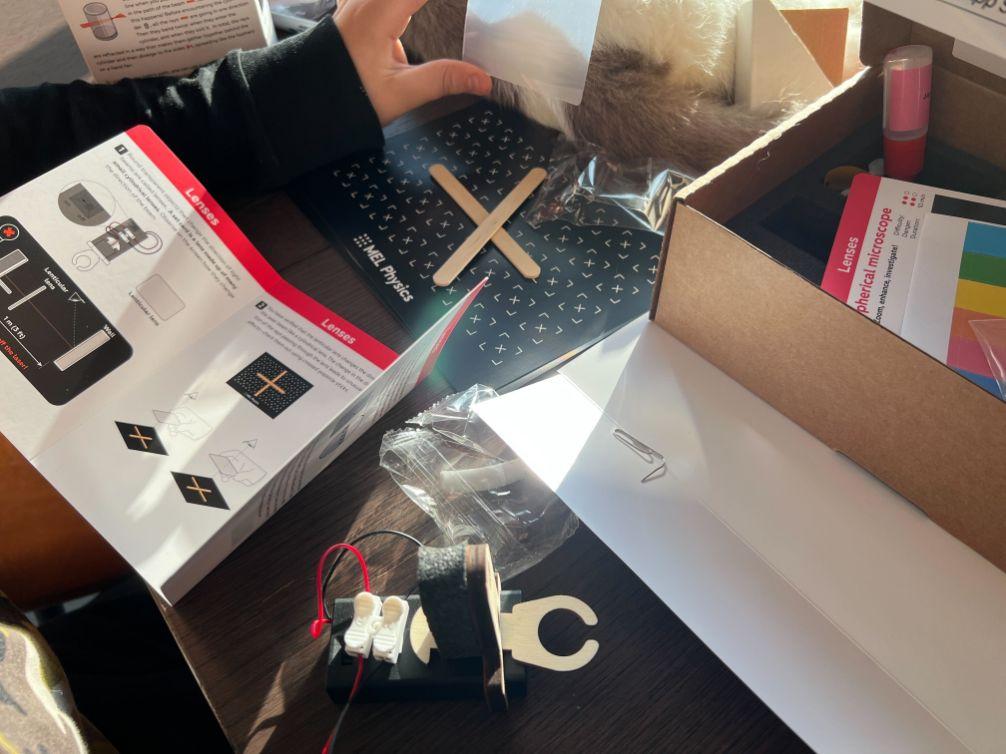
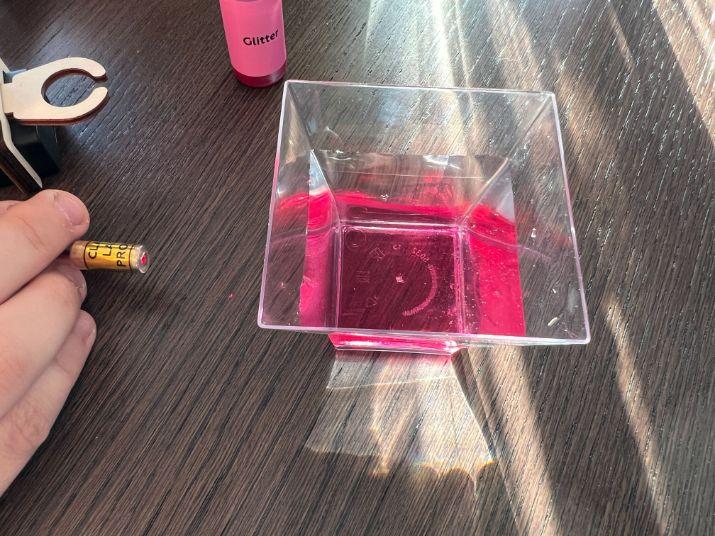
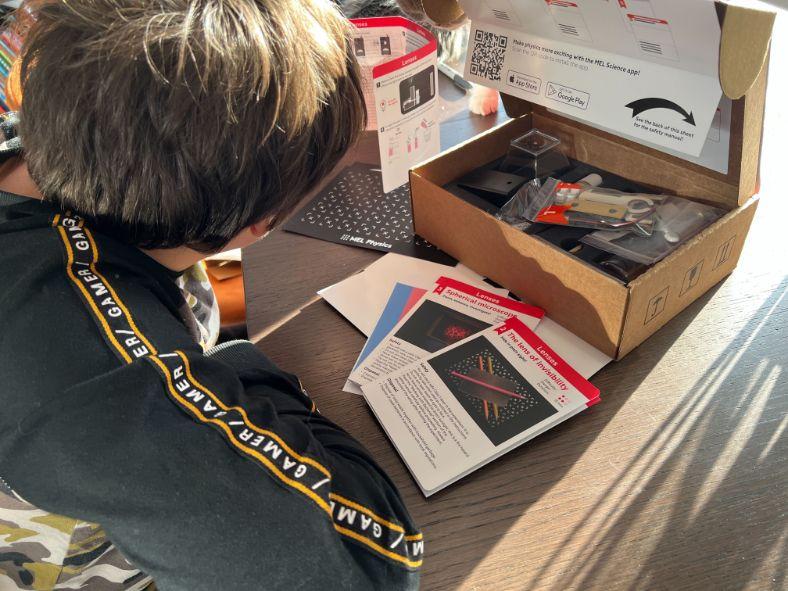
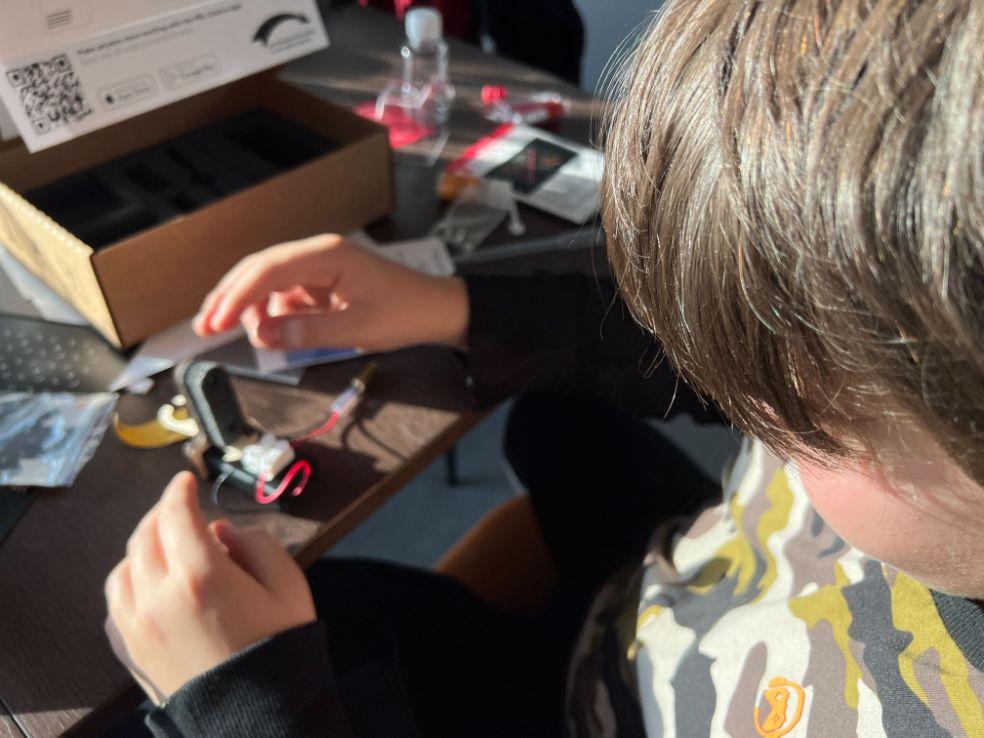
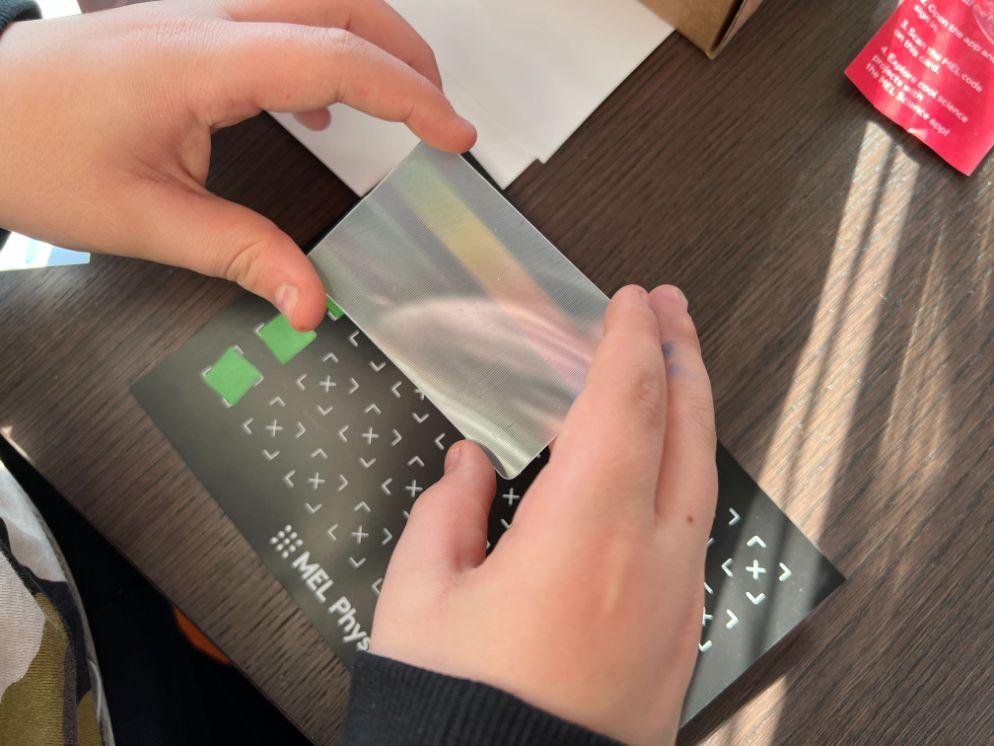
It’s a great example because it goes much more into depth than it actually needs to, that and it’s definitely something that wouldn’t be suitable for a younger age…. the reason for this is the laser that’s included. It would be quite easy to make a box based entirely around lenses without a laser, but instead, by including one and having a few experiments which revolve around it (defraction, etc) it really steps up the quality of the box.
There were four main experiments in the box, one based around laser visibility (through cloudy fluids), another defraction through a marble and two which used a lenticular card. The laser ones were, of course, incredibly cool, however I think the lenticular one got the biggest reaction from other people in the room. With that set of experiments you make something ‘disappear’ by holding the lense card over the top of it in a certain way. It’s a great example of defraction, and one that – for once – isn’t shown by blasting light onto the surface of water.
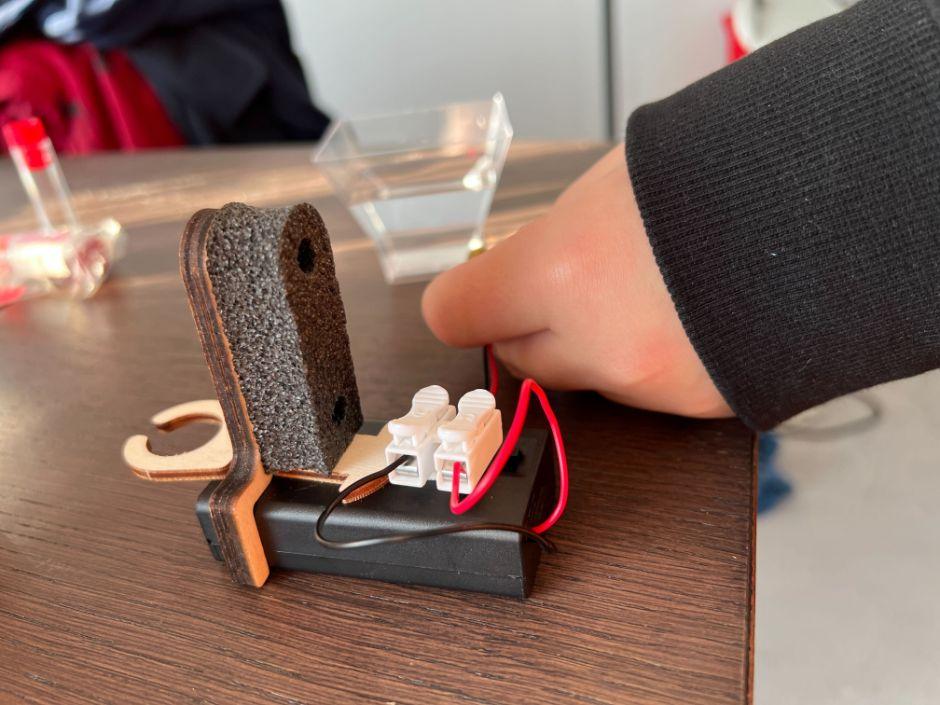
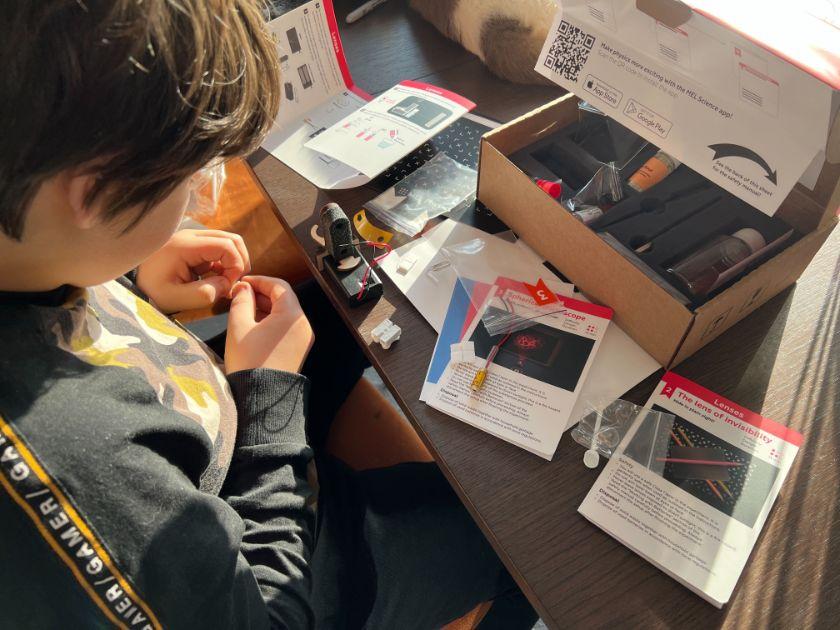
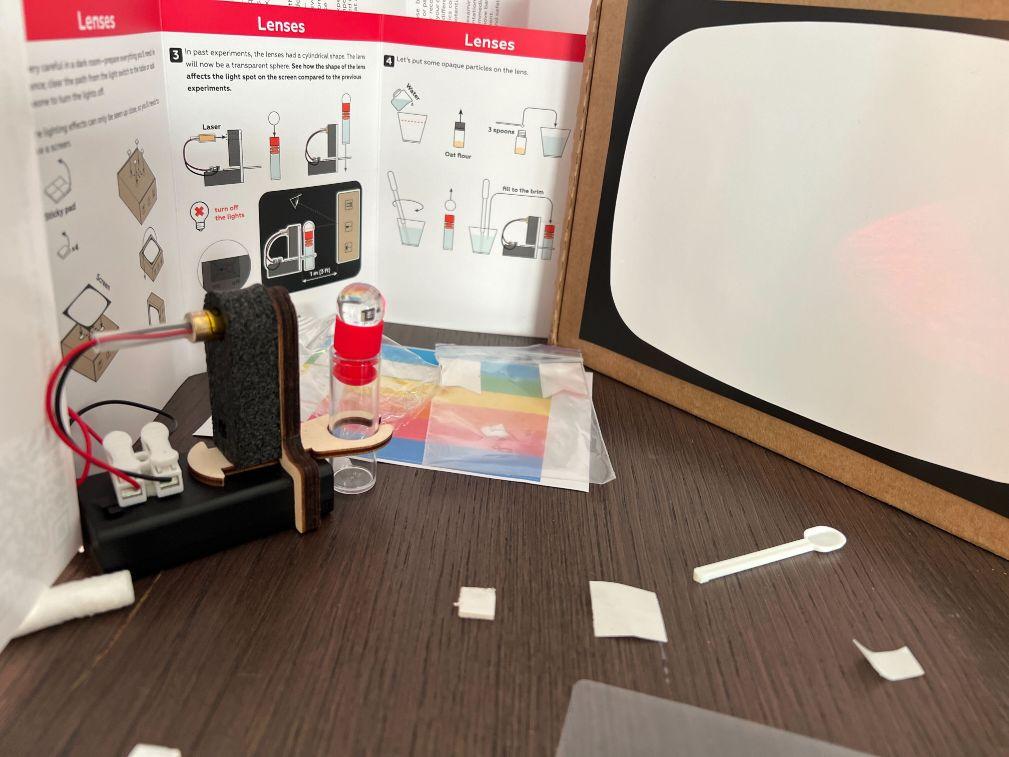
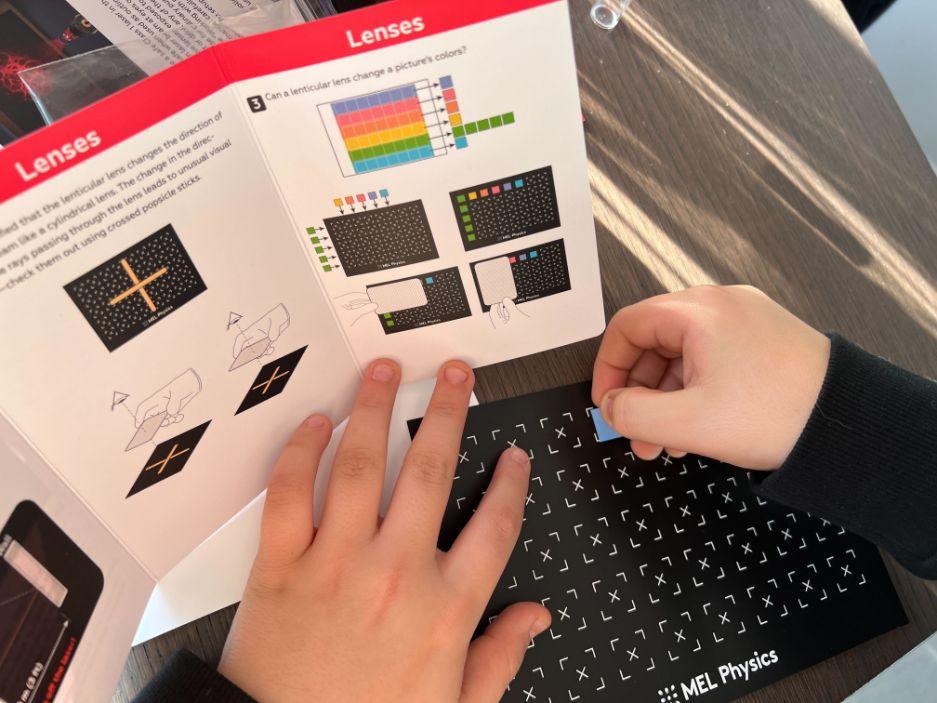
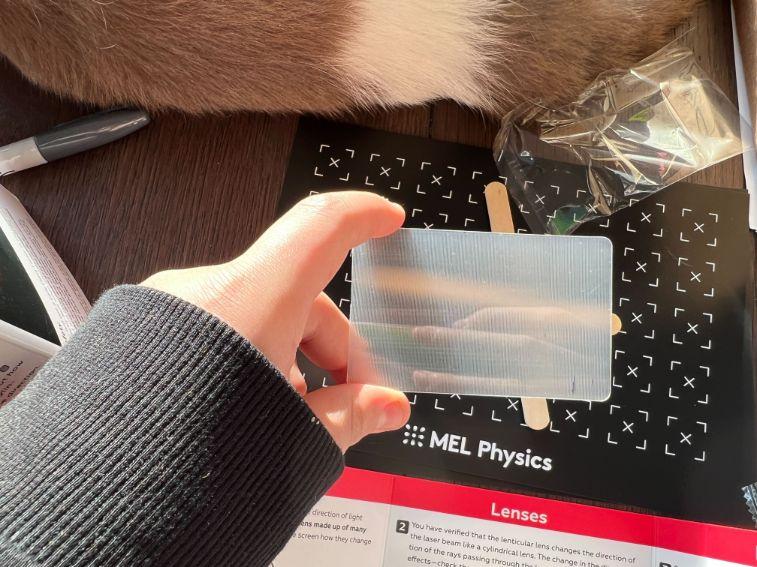

The other lens experiment works through placing stickers along a grid and then holding the card over it. Due to the textured-effect that makes the card the shape and form that it is, it totally blurs the lines between the colours. It blurs the colours and, if the adjacent colours are the same, blurs the stickers into a singular shape. Robin came over to look at what was going on and was completely captivated by this. That alone made it one of the best experiments in the box, and I certainly enjoyed Kai explaining to her how the whole thing worked.
We’ve already received the next box in the subscription, which is based around aerodynamics, and we can’t wait to sit down and give it a go. If it’s anything like this box, or the Luminescence or Polarized Light boxes, then we’ll likely keep this subscription going for quite some time.

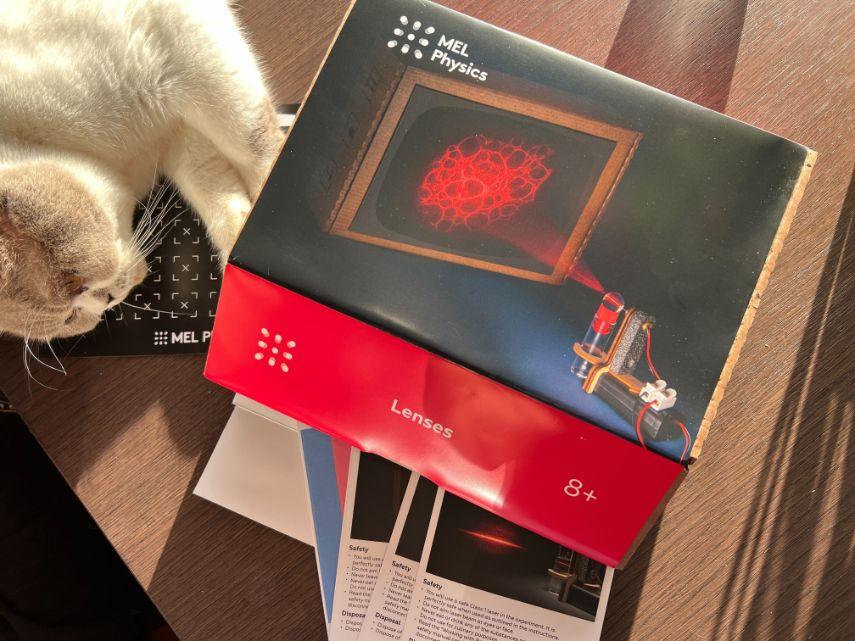
Every post you make for science-related toys and experiments is a joy to read. Thank you so much for sharing. My daughter is little for this now, but I know we will be getting into this fun stuff soon.
It is such a good kit – I am so glad you are enjoying all of the educational and science toys! 🙂
I love these science projects, I can’t wait to start doing science projects with my son, so much fun…
It is such a good experience.
I have been looking at these boxes. As homeschoolers I am always on the look out for fun ways we can change up our lessons.
These are such a good option.
My daughter made one of those out of recycled plastic and she was so amazed. It was really cool and easy to make. Thanks for sharing!
It is such a cool experiment!
This is so cool and I am loving it! I would as for science kits when I was a kid as gifts as I just loved them so much and this looks like so much fun plus educational! It’s a win win!
It is so good to have educational options.
My grandchildren would love the MEL Science Aerodynamics Kit
this is wicked my son would love it
What a thorough and useful review. Thank you. This subscription box looks perfect for older children.
Great way to learn about science thanks
with 2 children taking science lessons at school following these articles enables me to have an idea of what they do
My son is fascinated by all things science and engineering – I bet he would love this set! It looks fab, I fancy a go myself!
My son & my partner would love this!
We love science in our house, this would be an awesome addition
I love little science kits, they’re the best way to learn!
This looks really good, my son loves things that are teaching as well as fun.
We home educate and things like this are really helpful
This is something my daughter Lexie would love. Maths and Science have no nonsense answers but English and RE make her free think and she doesn’t like not having structure! This would keep her focused!
My daughter’s Nana is a scientist so they’re always doing little experiments. This looks like something she’d love to do with Nana x
My grandchildren would love the MEL Science Aerodynamics Kit they are really into their science
My grandchildren would love this
This looks like a fantastic kit
Great prize!
Such a really cool idea for the kids to take part in!
Love this giveaway this would be great for my kids they would love to try this.
I home educate our children and they are at a perfect age to try this for their science lessons! Great post too, thank you :0)
Great prize
What a great giveaway, a really cool idea
What a super prize. My grandson would love it all.
My daughter would love this
Looks fun and educational too!
this looks fab
I would like to win this for my nephew.
my nephew would love this
This looks fascinating
If I won, I’d give this to my niece who I’m sure would like it.
A great prize to try and win for my kids.
This would be so nice to try and win for my grandchildren.
A fabulous way to keep my grandson happy!